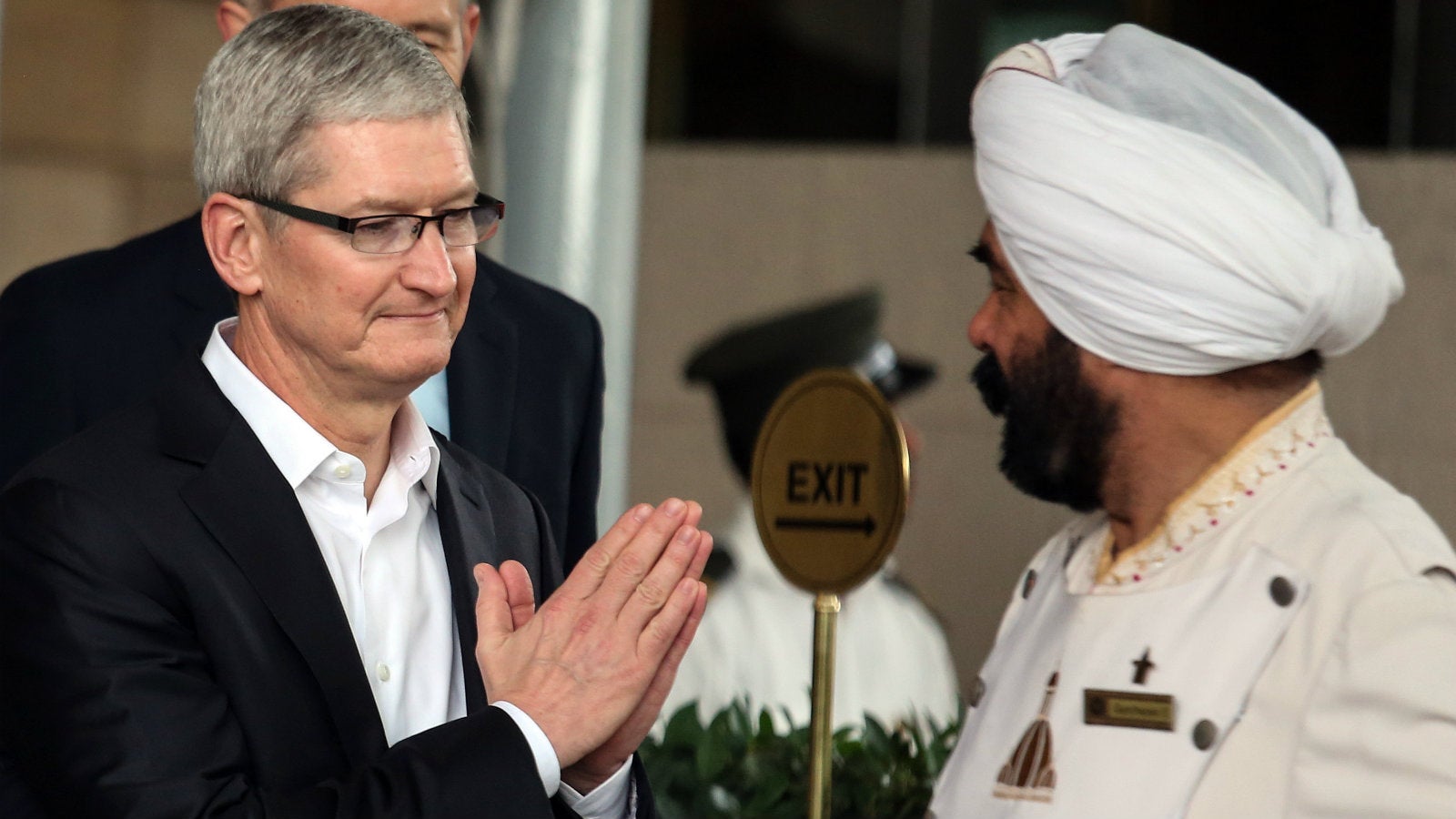Even Tim Cook’s fawning visit could not get India an Apple store
Even after making a trip to India, meeting the prime minister, attending Bollywood parties, and praying at a Ganesha temple, Apple’s CEO Tim Cook could not find a way around Indian regulations.


Even after making a trip to India, meeting the prime minister, attending Bollywood parties, and praying at a Ganesha temple, Apple’s CEO Tim Cook could not find a way around Indian regulations.
India has said that Apple must comply with a rule mandating foreign retailers to sell at least 30% domestically sourced goods if they wish to open stores in the country, according to a source-based Reuters report. Some Indian media outlets had earlier reported that the Narendra Modi government might waive the 30% sourcing norm for Apple.
This decision could hamstring Apple’s plan to expand its retail footprints in the world’s second-largest smartphone market. India is emerging as a critical market for the company after sales slowed down in China for the first time ever.
But selling in India is becoming a challenge for the tech giant. Even 10 years after iPhones were first launched in India, Apple has not been able to set up a direct store in the country. In order to sell through fully-owned stores, foreign retails have to procure at least 30% of the goods locally. Only companies selling “cutting-edge technology” are exempted from this rule. According to the Reuters report, Apple products were not considered to be in this category.
“They did ask for a waiver but didn’t provide any material on record to justify it. The decision was taken only after a thorough examination of their application,” an official, which did not wish to be named, told Reuters.
Apple currently manufactures most of its products in China.
In India, Apple products are sold through distribution companies, and the company holds only around 2% of the market.
This is a second regulatory setback for Apple this month. On May 03, the government had denied the company permission to sell affordable, refurbished phones in India.